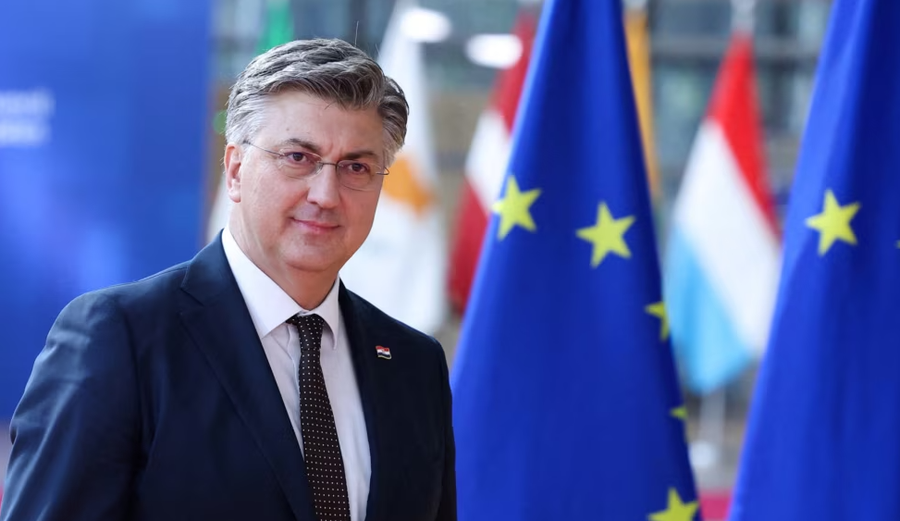
European Union (EU) leaders should pay more attention to the lack of stability in the Western Balkans, especially in Bosnia and Herzegovina and Serbia, Croatian Prime Minister Andrej Plenkovic said on Thursday.
"We need to monitor the situation in southeastern Europe, especially the stability of Bosnia and Herzegovina and the situation in Serbia," Plenkovic said ahead of the EU summit in Brussels.
"There are so many global events at the moment, it's time for some of that attention to also be focused on a region that has proven to be very volatile over the last 35 years," Andrej Plenkovic told reporters.
He was referring to the most serious political crisis in Bosnia since the end of its 1992-95 war, sparked by the separatist movements of Republika Srpska, after its leader, Milorad Dodik, was sentenced to a year in prison for ignoring the decisions of the international High Representative.
Plenkovic also referred to the months-long protests against the government in Serbia, following the death of 15 people from the collapse of a concrete shelter at the Novi Sad railway station in November.
Plenkovic also commented on the statements of Serbian President Aleksandar Vučić, who on Wednesday said that Croatia and Albania have opened "an arms race" by signing a memorandum on defense cooperation with Kosovo.
According to Croatian public broadcaster HRT, the Croatian prime minister stated in Brussels that he understands that Serbia is trying to look for problems elsewhere, but that they are not found in the memorandum of cooperation in the field of defense, recently signed between Croatia, Kosovo and Albania.
Members of the Kosovo Security Force during a parade in Pristina in 2024.
"This is a memorandum of joint cooperation, it has no hostile character, so I understand that now problems are being sought elsewhere, but in this text they do not exist," said Plenkovic, responding to a question about the statement of Serbian President Aleksandar Vučić.
The Serbian leader said that the memorandum constitutes a violation of the so-called subregional arms control agreement from 1996 and that he is "almost certain" that NATO was not notified of this.
Plenkovic insisted that this memorandum helps Kosovo and Albania's efforts in their reforms and in the exchange of experiences./ REL (A2 Televizion)











